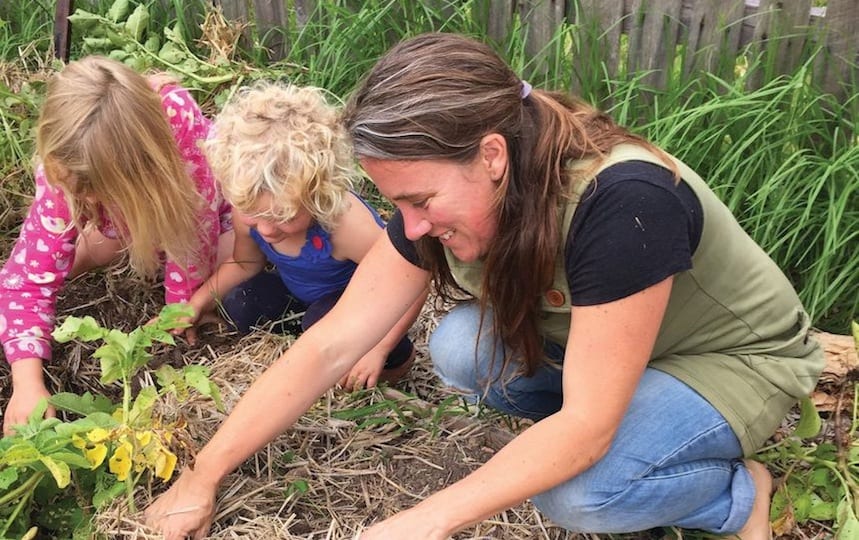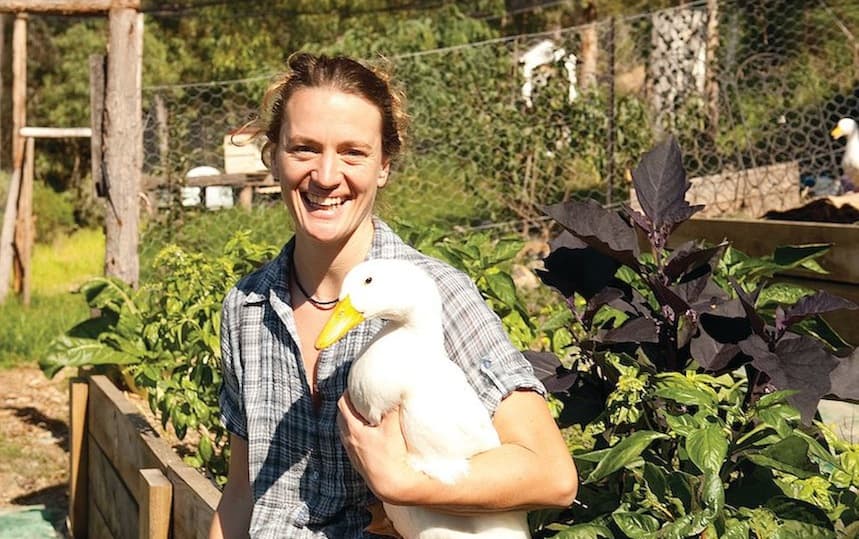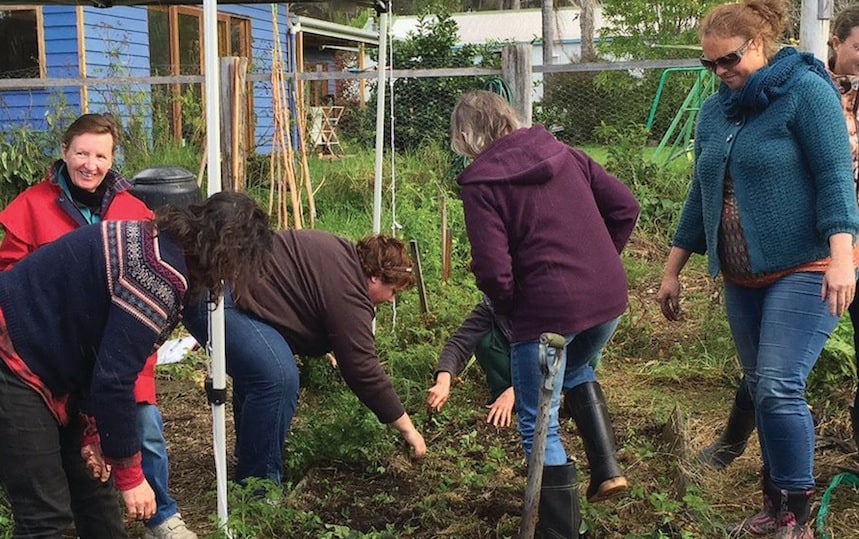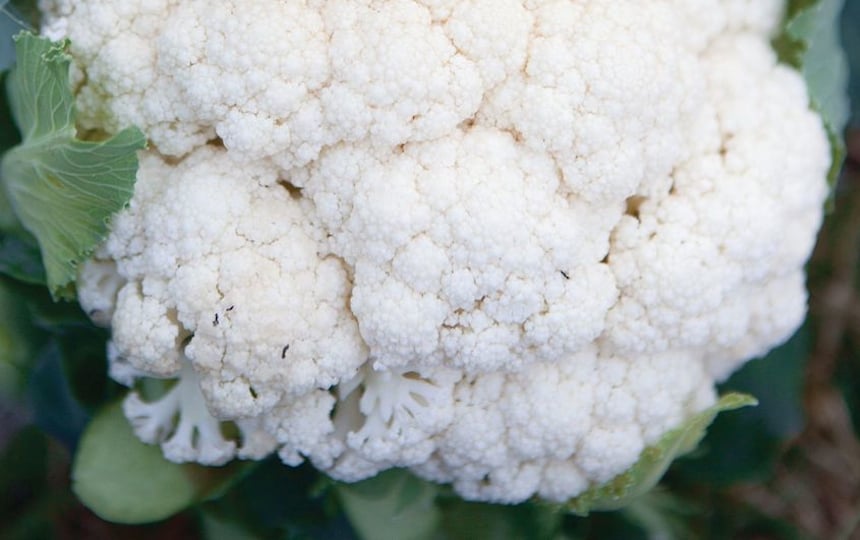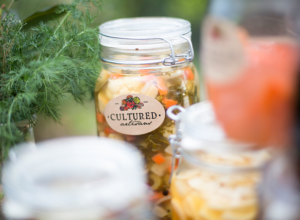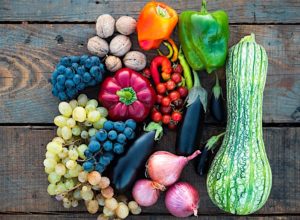How does permaculture tie in with our understanding of health and how is it good your health? Can it realistically be seen as a ‘health promoting movement’?
Understanding permaculture
Permaculture began as ‘permanent agriculture’, a sustainable food production system based on ecological principles.
Growing our own food is extremely good for us and there is an indisputable and ever-increasing body of research that supports the health benefits of gardening: it can improve our health through stress relief, exercise, mental activity and better nutrition.
Certain strains of a harmless soil-borne bacteria Mycobacterium vaccae have been found to stimulate the human immune system and boost the production of serotonin – a shortage of this mood-regulating brain chemical is associated with depression. Who would have thought that playing in the dirt could be so good for you?
A new perspective on health
Health can be defined in terms of our personal state of being bodily and mentally vigorous and free from disease. This raises the question of what it takes to create and maintain a sound body and mind.
This is about more than balanced meals, regular exercise and adequate sleep, and it is about more than the individual.
Humans and nature as one
Humans are organisms existing within nature and subject to her laws, though humanity is plagued with the illusion of disconnection from nature.
This mental delusion fools some people into thinking that they are somehow above or apart from nature; that the environment is ‘out there’ and as a result nature can be exploited, damaged, raped and pillaged with no consequences to humanity itself.
People speak of ‘returning to’ nature or ‘reconnecting with’ it, but in reality there is nothing to return to because we can never leave it. Everything we have comes from planet earth: nature provides all our needs. The connection to nature is also much deeper, more intimate, than humans usually acknowledge.
Our bodies are in a state of continuous exchange of materials and energy with the world around us. The basic things which keep us alive – air, water and food – have been cycled and recycled through nature since time immemorial, and will cycle through our bodies and flow back into the complex natural cycles which keep all things alive.
The extent to which our bodies exchange material with our surroundings is significant: each second 10,000,000 cells die and are replaced in our bodies by material provided through food. For example, carbon taken up from the air by plants (as carbon dioxide) is incorporated it into our bodies when we eat them.
We are not separate from nature.
Your body – or is it?
It gets better. Our health is not our own because our bodies aren’t either! Not only do we organisms exist in a web of life, but we are each very complex ecosystems.
Of the total number of cells in our body, 90% are bacteria! Such bacteria – in our digestive system, in our mouths on our skin – play an important role in maintaining our health.
Diet is a critical factor in health of the gut ecosystem and, unsurprisingly, diets of processed foods are linked to a less diverse gut ecosystem.
It should be very clear by now that our health is determined by external and internal ecosystems. How can we possibly be healthy if we live in a poisoned, contaminated and polluted environment? What we put into nature, we ultimately put into ourselves.
Establishing the permaculture- health connection: 4 ways permaculture is good for your health
Permaculture supplies the critical needs identified in our functional analysis through its ethics of earth care, people care and fair share. Let’s have a look at how these guide our actions.
1. Caring for the earth means caring for the soil, which is a very complex living ecosystem on which all life depends.It means caring for our forests, which are the lungs of the planet, ensuring a supply of clean air.
2. Forests are also inextricably linked to the process of rain formation and the water cycle and, therefore, play a key role in ensuring our supply of fresh water.
It means caring for our rivers, which are the veins of our planet, circulating the water which all life depends on. If our physical environment is healthy, our bodies are too.
3. Care of people is about promoting self-reliance by sharing knowledge and experience, to skill people up so that they can provide for some of their basic needs.
It is also about taking responsibility for, and looking to help, one’s community. Humans are communal and social animals, and cooperative in nature: beyond physical interdependency, humans need community psychologically.
It is a commonly accepted scientific fact that having a community is beneficial to the mental health of an individual, and lack of community is detrimental.
When people collaborate to support each other, and to meet their collective needs – both physical and non-physical – this creates a bond which builds a stable, supportive and emotionally healthy community which prospers.
4. Permaculture, as a social movement, also creates both a meaningful purpose to bring people together and the opportunity for collaborative action to create a world that truly fulfils their needs.
Fair share – also called ‘return of surplus to earth and people’ – is quite simple: if we take only our fair share, then there is enough for everybody, and there will continue to be in the future too.
Furthermore, when we share our surplus produce we build more bonds between people, again fostering a sense of community. It also embraces the concept that we don’t waste resources or generate pollution in accumulating unnecessary surplus.
By embodying and living within this ethical framework, we ensure the continued survival of our species and the health of the planet and maintain a healthy respect for life itself.
You can find the full version of this article in issue #4 of Pip Magazine, available here.
Angelo Eliades is a presenter, trainer and writer in the areas of sustainable gardening and permaculture, and a passionate forest gardening advocate and designer. His award winning demonstration food forest garden in Melbourne is regularly open to the public.

